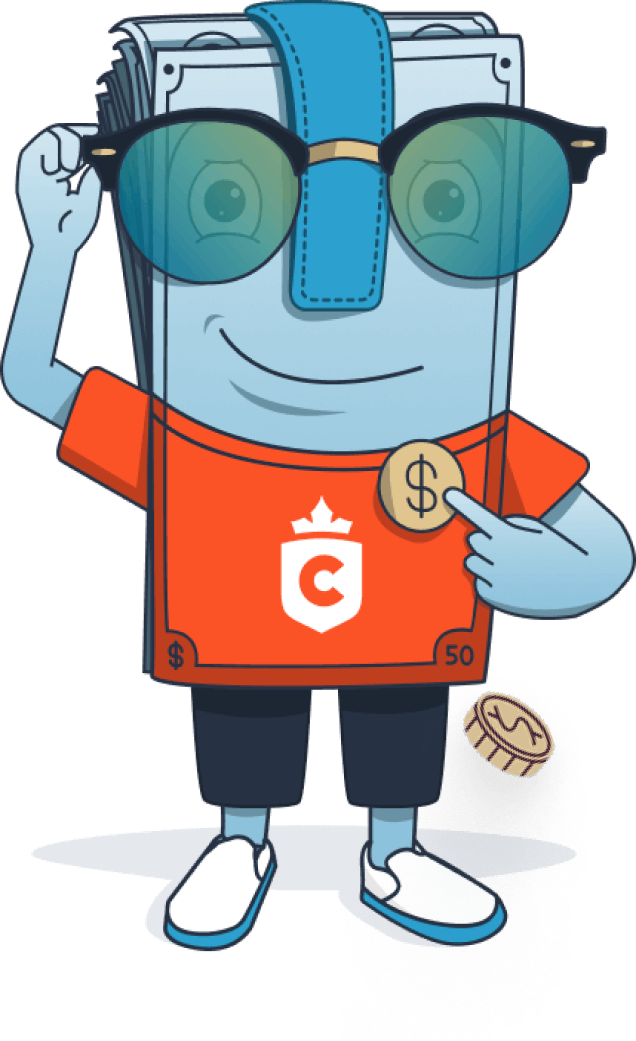

Most people you know probably have debt, and the reality is that many don’t have any clue as to how they can eliminate or reduce their debts. The simple reason for trying to reduce your interest rates is that it will save you money now and in the future, but getting started is hard.
The difference between buying a $400,000 house with a 4% interest rate and a 5% interest rate is $4,000. Would you pay an extra $4,000 on a car if you didn’t have to? The difference between a credit card balance of $20,000 at 25% interest instead of the same price on an auto loan at 5% is also $4,000.
So, if you decided to pay for your car on a credit card with a 25% interest rate, you would spend an unnecessary $4,000.
If you’re feeling swamped with debt, you’re not alone. In fact, the average Canadian adult now owes over $73,000, and the problem is only getting worse.
Luckily, there are strategies you can use for reducing interest rates and eliminating your debt right now. Let’s talk about reducing interest rates and how it will save you money.
1. Refinance Your Loans
Refinancing is a great way to reduce your interest rates on long-term loans, but it takes time to find the right strategy. Apply this approach to student loans, mortgages, auto loans, or large personal or business loans for the most effectiveness.
If you’ve made payments on time every month during your history with the lender or your credit score has improved, then you could save some money. A good credit score is necessary for this strategy.
Call your lender and schedule a time to discuss terms. During the meeting, let them know that you’re there to discuss a lower interest rate.
Your lender will ask for proof of employment and income, so have paystubs or equivalent documentation prepared for them and ready to go. Interest rates are currently as low as 2.25%.
If you’re just graduating college with a lot of student loan debt or if you just bought a house, the credit score game is only beginning. You could save thousands of dollars later on just by making timely payments and practicing good financial habits now.
2. Exchange High-Interest Rates
Exchanging high-interest loans for low-interest loans is a great way to reduce the interest you owe. For example, trading from a payday loan with 100% interest to your credit card with 24% interest will save you a fortune.
While that’s an extreme example, if your credit card has over a 20% interest rate (like most), you may find yourself swamped with debt. In that case, taking out a personal loan that has a 4% to 8% interest rate would make sense in the short term.
If you owe $10,000 on your credit cards and you’re making the minimum payment every month, you should expect to owe over $12,000 or even $13,000 within a year.
If that’s the case, the first step is to get back on your feet, tighten your household budget, and stop borrowing. Taking out a personal loan with a lower interest rate is the next step, and developing a payment plan that works for you is the next.
3. Balance Transfer
Paying off a credit card with another credit card is possible, but only advised if the other card has a lower interest rate. Luckily, if you have a good credit score, there are often promotional offers and rates for these transfers.
You can find these offers in the mail, in your lender’s app, or online. These promotional rates will be a smaller rate that you will pay on a balance transfer, but be sure to read the fine print. There will usually be an asterisk next to the rate, so read what they have to say, as there is likely a fixed term or other catch involved.
There could also be a transfer fee of between 1% and 3% of the total balance, so make sure that the numbers work out in your favor before committing to the transfer.
Promotional rates also expire in most cases, so make sure that you know the terms. It could last for 8 to 12 months or even longer. Make sure you have a payment plan in mind that you can handle and crunch the numbers to see if the promotional rate winds up being worth it.
4. Try Automating Your Payments
With some lenders (not all), you will be offered discounts on your interest rates simply by automating your payments. If you’re certain that you’ll have the funds available on time every month, then this is a win-win.
Not only will you potentially save 0.25% on your interest rates, but you will also have a chore knocked off your list once a month. Again, make sure the funds are available to avoid missed payments, which will only hurt your credit score and future interest rates.
5. Check for Loyalty Discounts
Some creditors will offer loyalty discounts if you bank and borrow from them for a certain period of time. If combined with an auto-pay discount, you could save a significant amount on your interest rates!
Most credit card companies will even offer introductory discounts of 0% interest for the first 12 months and other limited-time offers. Before signing onto a contract, read the fine print and learn the terms.
6. Build Your Credit
Without a doubt, the best way to position yourself for lower interest rates, especially over the long term, is to build your credit score. Not only will it help you negotiate lower interest rates for your current loans, but it will also help with any future loans you take out.
Do you intend to buy a house? Help your child pay for college? Start a business? Buy a car? Well, if you plan to do any of those at some point in your life, building a solid credit foundation now is only going to help.
Your credit score takes into account your payment history, credit card utilization, and length of credit as its primary factors. Hard inquiries and other factors aren’t of major concern for long-term credit health.
Payment History
To set your credit up for success, make payments on time every month. Automation is a great way to help, but tracking your finances as you go will ensure that payments are going through and that you won’t be late.
Payment history is the most important factor. If you need to pay late, you’ll only wind up with a fee based on your creditor’s policies. However, if you go past 30 days even once, it will drop your credit score by as much as 100 points and stay on your score for up to 7 years.
Credit Card Utilization
Use your credit cards every month, but use them wisely. If you don’t have any credit card debt and you’re hesitant to use your credit card, try adding simple charges to your cards every month.
A great idea is to add your subscriptions to your credit cards and to pay them off every month. This way, it’s one consistent payment every month and you won’t even have to keep your card with you for it to remain active.
However, you should leave a small balance on your cards once in a while. Let’s say you owe $200 on your card one month and you pay $150. If your credit card limit is $5,000, then this will be 1% utilization, which is perfect. Anything under 10 is great, but leaving 1% or less is considered perfect.
If your balance is $0 every month, this won’t improve your score as well as consistently paying down smaller amounts of debt will.
Length of Credit
Your average length of credit is the most frustrating aspect of your score if you’re just starting out. It’s okay to pay off a 5-year loan a little early if you want to, but you should keep your credit cards active for as long as possible.
If you close accounts too early, it will hurt your score. You want to be able to demonstrate to creditors that you are responsible for managing debt over a long period of time, so keep your accounts in good standing for as long as possible.
Reducing Interest Rates Saves You Money
Now that you know a few strategies for reducing interest rates, there’s no time like the present to start saving money! Use as many of these tips to your advantage as possible and see how much you can save. Stay up to date with our latest credit news and feel free to contact us with any questions!
Recent posts

20 December 2021
Can you Refinance your student loans in Canada?
20 December 2021
Regulations Surrounding Canadian Online Loans


